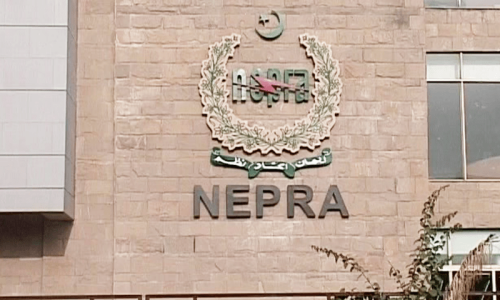KARACHI, June 9: Howsoever convincing arguments there may be for de-federalisation of sales tax, the provinces and mainly Sindh will not be able to get this right restored, because it involves an amendment in the constitution, which now seems almost impossible to achieve in parliament right now.
Sales tax is now the single biggest revenue earner of the exchequer for which the government has set two different formulae for distribution. The 12.5 per cent sales tax is collected and added to federal tax pool after the federal government deducts 5 per cent of it.
The vertical distribution of federal tax pool between provinces and Islamabad is in ratio of 42.5 per cent and 57.5 per cent. The 42.5 per cent of tax pool is then divided among the provinces on the basis of population ratio.
The 2.5 per cent of sales tax or one sixteenth of total sales tax is a compensation grant to the provinces after the federal government decided to abolish zila tax and octroi in 1998. Initially, it was to be divided strictly on the basis of actual collection. On this criterion Sindh’s share was 46 per cent.
But the federal government gives 50 per cent of this 2.5 per cent sales tax on the basis of population and remaining 50 per cent on the basis of actual collection.
“Sindh is a net loser on both counts,” a retired bureaucrat said. His argument is that sales tax is a universal provincial tax and not a federal tax and there is no justification of applying two criteria for distribution of one tax among the provinces.
A lengthy 62-point (or is it 82-point) constitutional package of the PPP does not incorporate any proposal to amend constitution for de-federalisation of sales tax although many of its leaders including a former Senator Taj Haider who represented Sindh on the National Finance Commission in 1995 openly advocated of restoring this tax to the provinces.
At present the PPP is well entrenched in central government and is present in all the four provinces but the party considers financial autonomy and resources distribution matter a secondary issue. The PPP’s dilemma is that the credit for complete federalisation of sales tax goes to late Z.A. Bhutto’s government in 1975 when the first National Finance Commission (NFC) gave its award and population was declared to be only criterion for distribution of resources.
“Since then federalisation of sales tax and distribution of financial resources on the basis of population are permanent features of Pakistan’s seven NFC awards,’’ an analyst in a private consultancy remarked. His assessment is that neither NWFP nor Balochistan is interested in restoring sales tax levy and collection rights to the provinces because of an undeveloped economy.
“Punjab leadership prefers to maintain a non-committal role as its interest lie primarily in maintaining population as the only basis of resources distribution,” the analyst added.
In this utterly non-committal and confusing mindset of leadership of major political parties, the Muttahida Qaumi Movement is the only party that has taken a clear stand on NFC, re-provincialisation of sales tax, construction of Kalabagh Dam and abolition of big agricultural estates.
“Almost all over the Western world including the USA, Canada and Australia sales tax is assessed and collected by the states and provinces,’’ Syed Sardar Ahmad, a former finance minister of Sindh, wrote to federal government after the NFC was reconstituted in 2005 and an informal meeting of all finance ministers was convened in September 2005 to persuade them to agree on a financial resources distribution formula prepared by Islamabad.
“Sales tax was entirely a provincial responsibility in addition to allocation of 50 per cent income tax till independence in 1947,” Sardar Ahmad who was also a member of sixth NFC said in a letter addressed to the federal government in September 2006.
Giving a brief history, he recalled that in 1948-49 the sharing of income tax was suspended temporarily while the federal government in Karachi took over the sales tax completely. In 1967-68, 30 per cent of sales tax was distributed on the basis of collection and remaining amount between East and West Pakistan in ratio of 54 and 46 per cent.
But after separation of East Pakistan, the first NFC award completely federalised the sales tax on production, consumption import and export. The federal government was levying and collecting sales tax on services too for which the political leaders in a joint press conference on June 4 demanded Islamabad to discontinue and transfer it to provincial governments.














































Dear visitor, the comments section is undergoing an overhaul and will return soon.